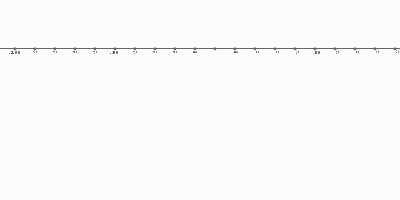Cuba (oct 1, 1895 – oct 1, 1902)
Description:
1895 From Florida, Jose Marti and other exiles arrive in Cuba and start another war for independence from Spain. Marti is killed but a guerrilla war continues, the guerrillas outnumbered five to one by Spain's forces.1897 In Cuba, Spain has a "Reconstruction Policy," trying to separate the rural population and the guerrillas. Hundreds of thousands of Cubans have been herded into camps, which are disease-ridden and where malnourishment spreads. A total of 321,934 people will be counted as having perished under the Reconstruction Policy. Hostility by newspapers and the public in the United States against Spain rises sharply.
1898 Spain fails militarily and grants limited autonomy to Cuba. The battleship USS. Maine is sent on a "courtesy" visit to Havana with words of friendship to Spain, which sends a naval ship to New York in exchange. The Maine blows up in Cuba's Havana harbor, killing 266. Spain's government is blamed. Spain denies the charge. President McKinley gives into passions, goes before Congress, asks and receives authority to send troops to Cuba. Spain refuses an ultimatum and the US declares war. On May 1, the US Navy, at the Battle of Manila Bay, defeats a Spanish squadron. On June 10, US Marines land at Guantanamo. On July 1 the Battle of San Juan Hill takes place, with 1,200 US and 593 Spanish casualties.
1901 Mar 2 The United States Congress passes the Platt Amendment, limiting the autonomy of Cuba as a condition for the withdrawal of American troops. The amendment declares the right of the US to intervene militarily in Cuban affairs.
1901 Jun 12 Cuba, occuppied since the Spanish American War in 1898, becomes a United States protectorate, meaning the US assumes responsibily for protecting Cuba from other counties while Cuba supposedly remains a sovereign power.
1902 May 20 The US recognizes Cuba as a republic independent of Spain. This is to be Cuban Independence Day.
1903 Feb 23 The Cuban-American Treaty is signed. It provides for Guantánamo Bay to be leased to the United States "in perpetuity."
1906 Aug 23 Cuba's president since 1902, Tomás Estrada Palma, requests United States intervention to contain a rebellion against his rule.
1906 Sep 29 Cuba's President Palma has resigned believing the US does not intend to save his regime. President Theodore Roosevelt names William Howard Taft has the provisional governor of Cuba. US Marines arrive to prevent fighting between Cubans and to protect US economic interests. Cuba's Liberals are pleased by Palma's resignation and lay down their arms. A provisional occupation government by the US begins.
Added to timeline:
Date:
oct 1, 1895
oct 1, 1902
~ 7 years
